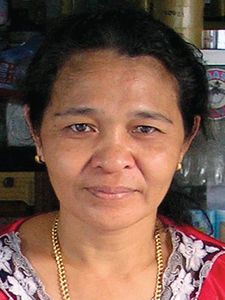 The island people formerly known as Tukang Besi in Southeast Sulawesi are now more commonly referred to as Wakatobi. This is an acronym from the four islands the Wakatobi live on: Wangi-Wangi, Kaledupa, Tomia and Binongko. They consist of nine indigenous communities: Wanci, Mandati, Liya, Kapota, Kaledupa, Waha, Tongano, Timu and Mbeda-beda. Each island has its own dialect, but people from different islands can understand each other when communicating.
The island people formerly known as Tukang Besi in Southeast Sulawesi are now more commonly referred to as Wakatobi. This is an acronym from the four islands the Wakatobi live on: Wangi-Wangi, Kaledupa, Tomia and Binongko. They consist of nine indigenous communities: Wanci, Mandati, Liya, Kapota, Kaledupa, Waha, Tongano, Timu and Mbeda-beda. Each island has its own dialect, but people from different islands can understand each other when communicating.
What are their lives like?
Most Wakatobi livelihood is agriculturally based. The main crops are corn, rice and cassava. Many Wakatobi are fishermen or boat builders. However, since there are few economic opportunities, many go to other locations in search of work, and remain in their new areas. The Wakatobi people have scattered throughout much of eastern Indonesia.
Seafaring is considered man’s work, along with boat building, brass and silver manufacturing, and tending to crops in the field. Pottery, weaving, preparing meals, cleaning, and managing the family’s money are the women’s primary jobs.
Wakatobi houses are raised above the ground and built of sturdy planks. The roofs are made of small planks, palm leaves or iron, and the houses have a few small windows. Most villages have markets where woven silk, cotton and other fabrics are traded. The island of Kaledupa is well known for its soft fabric known as masres.
In general, Wangi-Wangi is the most developed and is the seat of district government. It is also the transportation hub because of its proximity to Buton and Kendari.
Binongko is the most remote and least developed island, but is actually the home of the only iron workers still found in the island chain. The people of Binongko have many mystical stories about the origin of the island and sacred places that can be found there. Binongko’s eastern half is home to Cia-Cia people.
What are their beliefs?
The Wakatobi are Muslim, but they still believe in various kinds of supernatural forces. Ancestral spirits are considered to help in some instances and bring bad luck (such as illness) in others. The Wakatobi people also have a high regard for nature, because it is God’s creation. Sufi Islamic mysticism abounds with its focus on knowing God.
What are their needs?
The Wakatobi need help to improve their physical infrastructure in areas such as electricity and clean water supplies. They also need better formal education and technology training. They need more medical clinics and medical personnel. The rising tourist industry has great potential because of the exquisite marine life in this area.
Leave a Reply